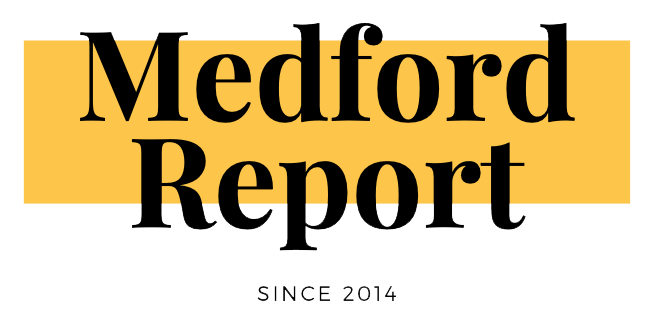Medford, OR — A sweeping Republican tax bill passed by the U.S. House of Representatives and headed for a Senate vote threatens to slash billions in federal Medicaid funding nationwide, with Oregon poised to bear an outsized impact due to its inclusive healthcare policies.
Oregon’s Medicaid program, known as the Oregon Health Plan, relies on more than $11 billion in federal funding annually — covering approximately 75% of its costs. The proposed legislation could reduce that funding by more than half, according to Oregon State Treasurer Elizabeth Steiner, potentially leaving hundreds of thousands of low-income residents without health insurance.
The bill, championed by Republicans, is positioned as a vehicle for broad tax cuts, enhanced immigration security, and welfare reform. However, Oregon officials have condemned it as fiscally irresponsible and punitive, targeting states that extend Medicaid benefits regardless of citizenship status, and those providing gender-affirming and reproductive healthcare.
“At this time, Oregon Health Plan benefits remain unchanged,” said Amy Bacher, spokesperson for the Oregon Health Authority (OHA). “The agency is currently assessing the full impacts of the bill.”
Work Requirements Threaten Coverage for Thousands
One of the bill’s most contentious provisions mandates that Medicaid recipients verify twice a year that they have worked or completed at least 80 hours of community service monthly. According to Emma Sandoe, Medicaid director for OHA, these new requirements could force between 100,000 and 200,000 Oregonians off Medicaid, either due to non-compliance or bureaucratic hurdles.
“When people lose coverage, it not only affects their health but also reduces federal dollars coming into Oregon,” Sandoe told the Oregon Senate Health Care Committee. She estimated that the work requirement alone could slash federal Medicaid funding by $1.4 billion annually, amounting to a $16 billion loss over the next decade.
Prohibition on Gender-Affirming Care Funding
The bill would bar federal Medicaid and Children’s Health Insurance Program (CHIP) funds from paying for gender transition procedures for minors starting immediately, with the restriction expanding to adults in 2026. Oregon currently supports approximately 7,000 Medicaid recipients receiving gender-affirming care.
LGBTQ+ advocates in Oregon have decried the measure as a targeted attack on transgender individuals. “If this bill passes, more transgender people will die,” said Blair Stenvick, spokesperson for Basic Rights Oregon. Stenvick emphasized that gender-affirming care accounts for a small fraction of overall Medicaid costs and called the provision an ideological move aimed at controlling personal healthcare decisions.
Impact on Immigrants and Health Coverage
The legislation also proposes reducing Oregon’s federal Medicaid matching rate from 90% to 80%, unless the state ceases covering immigrants regardless of their citizenship status. Oregon is among a handful of states offering Medicaid benefits to eligible adults and children irrespective of immigration status — with about 100,000 currently enrolled in programs like “Healthier Oregon” and “Cover All Kids.”
The drop in federal matching funds could cost Oregon roughly $1 billion annually, further straining the state’s healthcare budget.
Reproductive Health Services at Risk
The bill extends long-standing federal prohibitions on abortion funding by barring Medicaid reimbursements to organizations that provide abortions for a decade. This would affect nonprofits such as Planned Parenthood, which provide a broad range of reproductive health services — including cancer screenings, family planning, and STD treatments — to predominantly low-income Oregonians.
Sara Kennedy, CEO and President of Planned Parenthood Columbia Willamette, warned that the bill could exacerbate existing budget deficits and harm access to essential care. “If this bill passes, cancers will go undetected and untreated,” Kennedy said. “Pregnancies will become more dangerous — not just for our patients, but for the entire population.”
Additionally, the bill would cap or freeze state taxes on medical providers — a critical funding mechanism states use to bolster Medicaid spending by leveraging federal matching dollars. These provider taxes account for about 17% of Medicaid funding nationally.
As the Senate prepares to debate the bill, Oregon leaders and health advocates emphasize the high stakes involved. The legislation’s provisions threaten to dismantle Oregon’s inclusive healthcare system, jeopardizing coverage for children, seniors, immigrants, LGBTQ+ individuals, and low-income families.
“The potential loss of billions in federal funding and the erosion of healthcare access represent a crisis for Oregon,” Treasurer Steiner said. “This bill would punish states that choose compassion and inclusivity over exclusion.”

